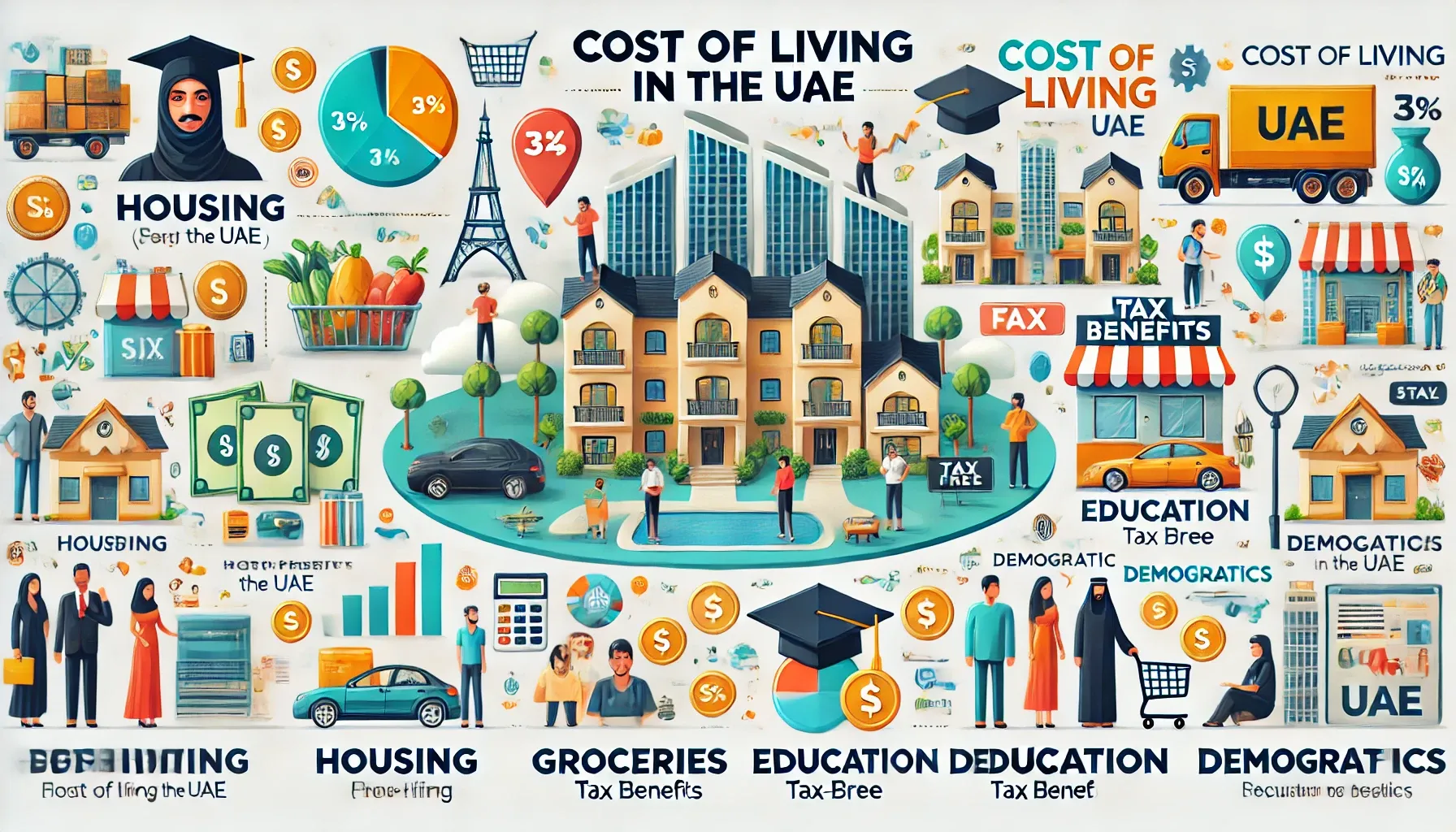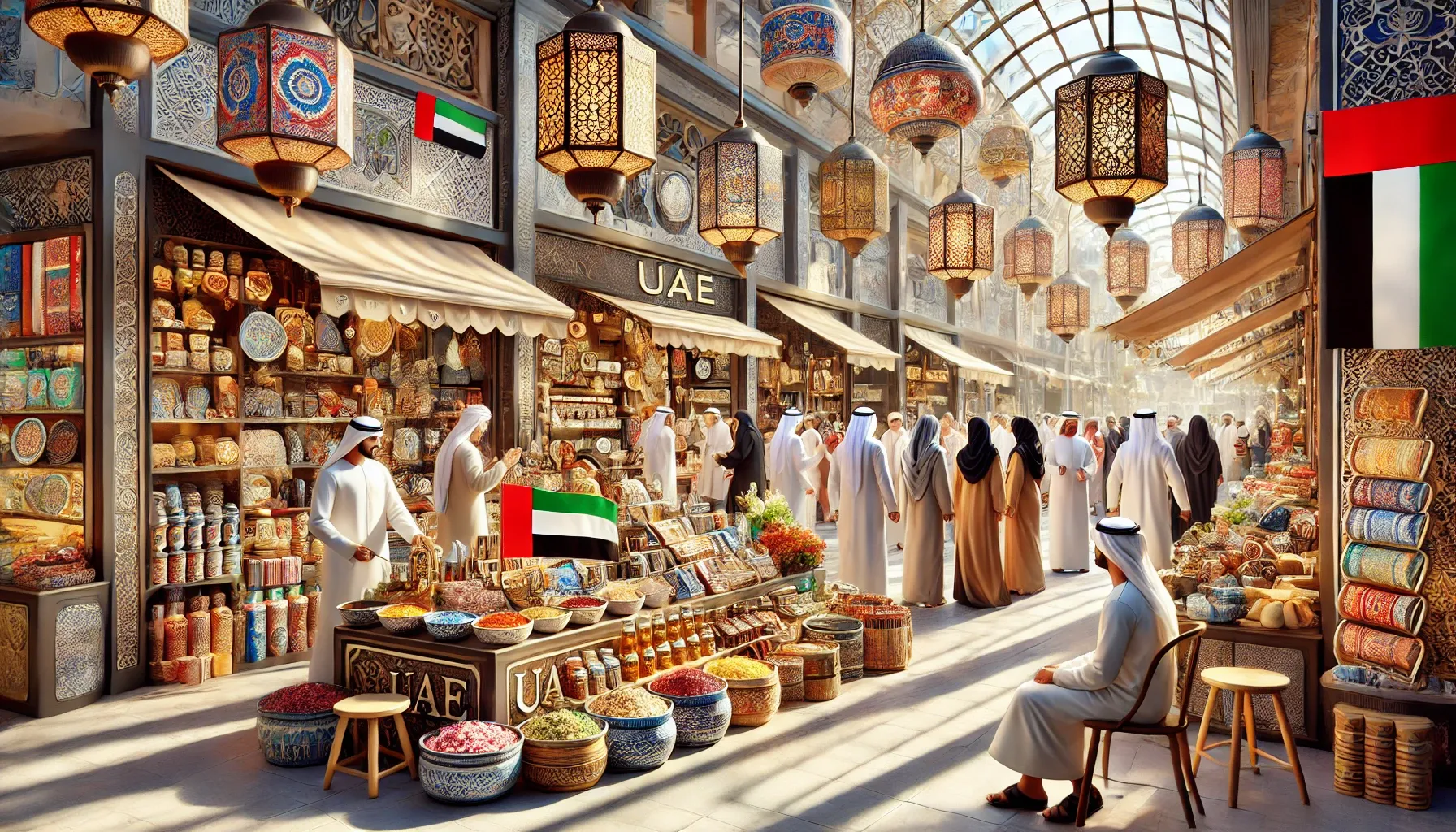What is the cost of living in the UAE for foreigners?

- How to effectively plan finances in the UAE for a comfortable life?
- What are the current prices for goods and services in the UAE?
- What is life like for foreigners in the United Arab Emirates?
Key aspects of financial planning in the UAE
In this article, we will discuss the key aspects of financial planning in the United Arab Emirates. We will look at the cost of living in the country, as well as the main items that make up the budget. The official currency of the UAE is the dirham (AED), which currently has an exchange rate of about 0.25 euros, making it dependent on the US dollar. To better understand the local economic situation, it is important to know that one dirham is divided into 100 fils.
Emirates with the largest number of expats
Among all the emirates, the highest number of expats live in cities like Dubai and Abu Dhabi. Compared to Moscow, the cost of living in Abu Dhabi is about 25% higher. To maintain similar living conditions in the capital of Russia, around €3400 would be needed, while in Abu Dhabi, these expenses would amount to approximately €4245. The situation is even more complicated in Dubai: here, a comfortable lifestyle would require spending around €4780. In some expensive areas of the capital, such as Dubai Marina, the cost of living can rise to quite impressive amounts.
Tax policy of the UAE
One of the reasons many foreigners choose to live in the UAE is its attractive tax system, including the complete absence of personal income tax. According to statistics, about 80% of the country's population consists of foreign citizens, and around 90% of all workers are migrants. However, before making a decision to move, experts strongly recommend thoroughly analyzing potential expenses for housing, food, and education, as well as comparing them with the expected income level.
General expenses of migrants
Most migrants, mostly from South Asia, countries such as India, Pakistan, Bangladesh and Sri Lanka, say that while their salaries have remained the same, living costs have increased significantly over the past decade. Based on data from Arab publication The National, more than half of expats (56%) find it difficult to maintain a comfortable standard of living due to the high prices of basic goods and services. This is a problem for both expatriate workers and locals.
Budget distribution of residents in the UAE
As for the budget distribution of an average resident of the UAE, it looks as follows:
- 56%money is spent on housing rent,
- 13%intended for education payment,
- 7%spent on medical services and food products,
- 5%is spent on leisure and entertainment,
- 4%it's for home goods,
- 3%is allocated for transportation and clothing,
- 2%other expenses are included.
Prices for food products
Speaking of food prices, according to data from the international portal Numbeo, let's take the following prices for basic products as an example:
- Milk (1 liter) costs approx.5.48 AEDor1.38 euros,
- Fresh white bread (loaf) can be bought for4.16 AED. (1.05 euros),
- Rice (1 kg) will cost7.80 AED (1.96 euros),
- A dozen eggs cost about9.30 AED (2.38 euros).
Conclusion
Although life in the UAE may seem appealing due to the absence of taxes, the high cost of living requires residents to take a careful approach to managing their budget, highlighting the importance of financial planning for a comfortable life in this region.
Prices for groceries in the UAE
According to recent studies, current prices for goods in the UAE are as follows: a kilogram of local cheese can be purchased for about AED 9.66 (€2.43). A 1 kg pack of chicken fillet will cost around AED 30.42 (€7.65).
For example, fruits like apples and oranges cost between AED 7.21 and AED 8.41 (€1.81-€2.12). As for vegetables, the price ranges from AED 4.80 to AED 30 (€1.21-€7.55).
A 1.5 liter bottle of drinking water costs about aed1.75 (€0.44) and a pack of Marlboro cigarettes costs about aed10 (€2.52).
It should be noted:The sale of alcoholic beverages in regular stores and supermarkets in the UAE is not allowed. However, there are specialized shops in the country that have licenses to sell alcoholic products. It is possible to bring in strong drinks and wines purchased at duty-free in the airport, as well as to order them in restaurants, bars, and hotels. Prices for a bottle of beer start at around AED 4 (€1).
Clothing and entertainment
When considering the prices of clothing and leisure activities, they vary significantly:
- Levi's brand jeans cost around aed294.14 (€74).
- The dress will cost approximately AED 212 (€53.31).
- Nike sneakers – around AED 330 (€83.02).
- Men's leather shoes cost about AED 360 (€90.56).
- A subscription for classes at the sports club for adults costs AED 312 (€78.5).
- An hour of tennis court rental will cost aed77 (€19.37).
- A movie ticket can be purchased for AED 35 (€8.8).
Connection and internet
In the field of telecommunications and internet services:
- The price per minute of the prepaid tariff is aed0.44 (€0.11).
- The monthly cost of internet with a connection speed of 6 Mbps is around AED 290 (€72.95).
Residential real estate
When it comes to residential real estate, the average rent for a one-bedroom apartment in the UAE is approximately AED 6,223 (€1,565). After expenses for utilities and essentials, the average resident can expect to have around AED 10,745 (€2,703).
When considering the coastline, rental prices there are significantly higher, sometimes twice as much as in other regions.
Renting an 85 square meter apartment, monthly utility costs range from aed700 (€176). The main provider of water and electricity services in the UAE is DEWA.

Sale hotels in Jumeirah Lake Towers with city view 190 600 $

1 Bedroom

2 Bathrooms

80 м²

In the Emirates, there is no need for heating, but it's important to consider the costs of air conditioning. The company Empower offers air conditioning services, and their prices range from AED 450 to AED 800 (€113-€200) per month.
Rent and utilities
Tenants should independently arrange contracts with utility services in their name, especially in the case of long-term rentals. Payment for garbage collection is usually handled by the apartment owner.
When signing a lease agreement, a term of one year is usually specified, and it is possible to require a prepayment for the year and a deposit, which is 5% of the rental amount for an unfurnished apartment and 10% if it is furnished.
It is also worth noting that 5% of the rental cost goes to the real estate agency as a commission.

Rental accommodation in the United Arab Emirates
In the United Arab Emirates, the cost of renting a small studio significantly depends on its location and ranges from €12,500 to €22,000 per year. It is important to note that for short-term rentals, all utilities are already included in this amount. Tenants can enjoy the comfort provided by amenities such as a swimming pool, internet, and satellite TV.
When renting a property, a deposit is also required, which will be returned after the property is vacated. Prices for short-term rentals of one-bedroom apartments in Dubai start at €270 per day.
Education for foreign children
As far as children's education is concerned, there is no possibility for foreigners in the Emirates to study free of charge in public schools. In large cities, such as Dubai and Abu Dhabi, foreigners have a chance to choose among many private international educational institutions. It is noteworthy that about 30% of all educational institutions in the country are such schools and universities.
These educational institutions are usually highly qualified; however, the cost of tuition can be quite significant, and the number of places is often limited. Parents are advised to think ahead about their children's future education to avoid any surprises.
Tuition fees
- Preschool education:It starts at AED 7000 (€1761).
- Primary classes:from AED 45,000 (€11,322).
- High school grades:about AED 90,000 (€22,640) per year.
Additionally, some educational institutions may have extra costs for transportation, uniforms, and study materials. Due to rising education costs, many families prefer the option of homeschooling.
Transport in the UAE
As for transportation, public transport fares are AED 4.5 (€1.13), while a monthly pass will cost AED 200 (€50.30). Dubai boasts one of the most modern subways in the world, which is designed with the latest technology.
The metro is not only convenient and inexpensive, but it also has an attractive design. It covers the entire city, and soon there are plans for expansion with new lines that will connect Discovery Gardens with Al Furjan. New tram lines have also been introduced in the Dubai Marina area.
However, most residents still prefer to travel in their own cars.
Taxis and cars
Taxi fares vary, and for passengers, the starting fare is AED 5 (€1.26), plus AED 2 (€0.5) for each kilometer traveled. A new car, such as a Volkswagen Golf, can be purchased for around AED 70,000 (€17,610), and the price for one liter of gasoline is AED 1.75 (€0.44). Car rentals start at AED 1,500 (€377) for a compact hatchback.
Healthcare system
The healthcare sector in the United Arab Emirates is characterized by a high level of medical services and modern technologies. This ensures that the residents of the country have access to high-quality medical care. You will be pleased to take advantage of all the benefits of a healthcare system that is one of the most advanced in the region.
Conclusion
To conclude this article, considero that living in the United Arab Emirates is indeed a mixture of benefits and challenges. When deciding to relocate, it is important to weigh the pros and cons by carefully analyzing your budget.
Although the absence of income tax is an undeniable advantage,high costs of housing and foodcan become a significant burden for many expats.
I would like to point out that despite the attractive living conditions, such as diverse culture and career growth opportunities, the actual cost of living in the Emirates can significantly exceed expectations.
Cost issues
As many immigrants have found out,the rise in prices for essential goods and servicesIn recent years, it has hit hard on the wallets of those who hoped for a stable standard of living.
The provided data on the distribution of expenses among the country's residents shows that more than half of their income goes towards housing rent, which creates significant financial stress. However, with the growing number of foreign residents, there is hope for an improvement in the situation and the expansion of social programs that could help reduce the financial burden on expats.
Recommendations
From personal experience, I recommend potential immigrants to the UAE:
- Carefully plan your expenses.
- Compare prices for groceries, rent, and other daily necessities with income.
- Understand how comfortably you will be able to live in these conditions.
It's important to remember that a good standard of living is not just about high earnings, but also about the ability to enjoy that way of life.without experiencing financial hardship.
Comment
Popular Posts
9 October 2024
2799
9 October 2024
276
Popular Offers




Subscribe to the newsletter from Hatamatata.com!
Subscribe to the newsletter from Hatamatata.com!
I agree to the processing of personal data and confidentiality rules of Hatamatata






